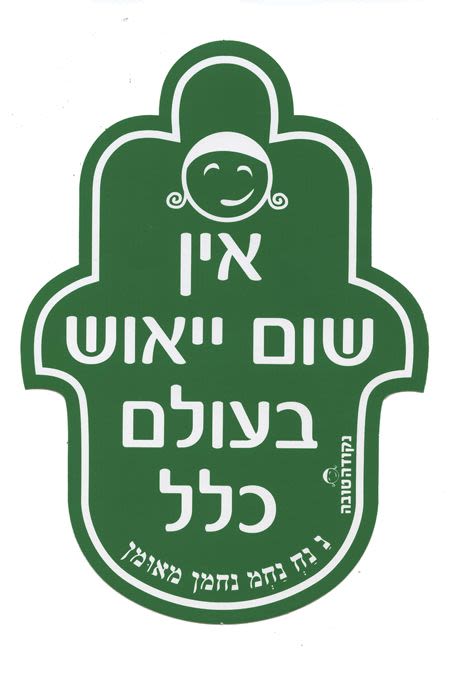
Not Just a History Book
The idolatrous kings of ancient Israel repeatedly trusted some foreign monarch to save them from their enemies - and it always backfired. Sound familiar?

Rav Arush mentions a lot that our holy writings shouldn’t be read as some sort of ‘fairy tale’ or history book, G-d forbid. He teaches time and time again that whatever bit of the Tanach you happen to be looking at, you should try to see what it has to say to you, specifically.
At the moment, I’m reading through the book of ‘Kings’ and apart from the fact that it’s a really good read, it’s also giving me some amazing food for thought and insights. Briefly, the book was written by the prophet Jeremiah, and it chronicles the religious actions and righteousness of the kings of Judah and the separate kingdom of Israel, from King David’s time, up to the time of the destruction of the first temple.
As I’ve gone through it, lots of things have struck me, both individually and collectively. G-d willing, I’ll write about some of the ‘individual’ insights another time, but today, I wanted to share one of the main ‘national’ lessons that keeps coming up again and again in the book of Kings: every time there is a ‘security threat’ or a dangerous enemy to contend with, the Jewish kings continually make the mistake of ‘trusting’ a human ally to save them, instead of relying on G-d.
They send these ‘saviours’ vast amounts of money, they kowtow to them, they fall over themselves to be subservient and fawning – and in the end, these human ‘saviours’ always but always let them down. At best.
At worst, they take all the money and Jewish concessions and still turn around and try to attack and destroy the Jewish kingdoms.
Does this sound familiar to anyone out there?
The first king of the breakaway territory of the ten tribes was Jeroboam, and he instituted idol worship as a ‘political’ ploy to try and keep his kingdom intact and his subjects from being drawn back to the Temple in Jerusalem, and by extension, the rival kingdom of Judah. As they were died-in-the-wool idolaters, you could argue that the ‘Israeli’ kings didn’t know any better than to try to trust to the ‘diplomatic process’. But worryingly, even the more righteous kings of Judah continued to make the same mistake when they were facing a big external security threat. Instead of trusting G-d to resolve it, they trusted some Aramean, or some Egyptian, or some Assyrian – and it always but always back-fired on them.
There was one notable exception to this rule: King Hezekiah, one of the last kings of Judah. When King Hezekiah was told that the Assyrian ruler Sennacherib was marching on Jerusalem, (having conquered every other enemy he’d faced in the field, including the more powerful Kingdom of Israel) – what do you think he did?
Here’s a partial list of what he didn’t do: He didn’t send delegations to Sennacherib promising not to let his people build any more houses. He didn’t send his courtiers to interminable pow-wows, to ‘talk peace’ with Sennacherib. He didn’t go down to the town square and start giving interviews about how he was going to pound Sennacherib into the ground.
He went to the Temple, and he prayed. Lots. He kept praying, until his cousin, the prophet Isaiah, told him that his prayers had been accepted by Hashem, and the all-powerful Sennacherib was going to be routed out of Israel without even a shot being fired.
You should know, Sennacherib was the world power of his day; no-one else even came close. He marched on Jerusalem with an army of 185,000 men – an absolutely ginormous number of men, when you consider that most ‘big’ cities at that time barely had 10,000 inhabitants.
His army encamped outside the walls of Jerusalem, and one of Sennacherib’s men, a ‘renegade’ Jew, came up to the walls to taunt the inhabitants and King Hezekiah.
The renegade Jew heaped scorn and abuse on the king, painting him as a weak, ineffective ruler who was about to be crushed under the heel of the great superpower of the day.
“Don’t think your ‘G-d’ can save you, any more than the other nations ‘gods’ saved them!” he taunted his fellow Jews. Know who you are dealing with here – Sennacherib, the most powerful nation under the sun. An army that had never been defeated. A world power that held all the cards.
Again, does any of this sound familiar to anyone out there?
Before Hezekiah started his big pray-a-thon, he first made some practical preparations for war, including digging the ingenious underground water tunnel to bring Jerusalem’s water supply within the fortified city walls. (You can still walk through Hezekiah’s tunnel today if you visit the City of David.)
He also tried to send a monetary ‘tribute’ to the empire-building Sennacherib – and when you read that in the Book of Kings, at first glance, it looks like Hezekiah fell into the same trap as his forebears.
But he didn’t, because he knew that the money wasn’t going to save him, if G-d decreed otherwise, and that the Assyrians weren’t going to conquer him, if G-d decreed otherwise.
How do we know that? Simple. Once Hezekiah had prayed his heart out – and been assured by the prophet Isaiah that his prayers for salvation had been accepted – he didn’t waste any more time worrying, stressing and fretting. In fact, he went to sleep, and woke up to the news that a devastating plague had broken out in the Assyrian camp overnight, and barely a handful of people, including Sennacherib himself, had survived it. The Assyrian army was completely decimated, and Jerusalem was saved.
Now, stop for a second, and imagine how Hezekiah’s story would have played out today. Firstly, when it became obvious that he wasn’t just going to give in to Sennacherib’s bully-boy tactics, there would be a whole slew of press articles accusing him of insanity; or megalomania; or naivete. One commentator after another would be explaining how the ‘only real option’ was to do exactly what the Assyrian ruler wanted, even if it meant committing national suicide.
Hezekiah’s generals would be all over the airwaves, playing the confrontation up, or down. Instead of digging the water tunnel, the general population of Jerusalem would have called a general strike to protest their king’s ridiculous foreign policy of ‘relying on Hashem’.
Jerusalem’s citizens would be calling their cousins in New York, or Paris, or London, to try and arrange emergency visas to escape from the coming siege and terrible aftermath.
Pharoah would be galloping in every few days to try and broker a peace pact, which would involve Hezekiah opening the city gate to the Assyrian invaders, laying down all his weapons and agreeing not to even fire so much as a single arrow, in case some Assyrian soldier actually got hurt.
Hezekiah himself would be surrounded by people trying to get rid of him, and his ridiculous ideas about ‘relying on Hashem’. He’d be bad-mouthed in every bar, pub and club in the land.
“There’s no hope!” would be the chorus in the marketplace. “We’re doomed!” would be the conversation at the local well. People would walk around depressed and despondent, or numb, because they’d be stoked up on Prozac and other mind-numbing medications, to cope with the stress of it all.
As Rav Arush stresses time and time again, our holy writings are not a history book. They are not a fairy tale. They are the key to understanding ourselves, to understanding our issues, and perhaps most importantly of all, to understanding how we solve our seemingly ‘unsolvable’ problems.
Every king in the Book of Kings who relied on a foreign power, or flesh and blood, to solve their problems ended up with even more problems and even more enemies.
If we really want a solution to our national problems, the book of Kings clearly describes how to get it: make real teshuva, ask G-d to help you, and then sit back and wait for the miracle.











Tell us what you think!
Thank you for your comment!
It will be published after approval by the Editor.